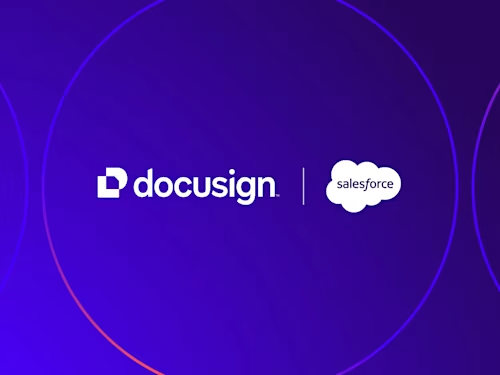
A evolução digital do Banco Inter com a Docusign
Assista ao vídeo com depoimento da gestora do Banco Inter contando como a Docusign revolucionou a área de contratação de crédito consignado.


O Banco Inter é a única instituição financeira a oferecer conta corrente totalmente gratuita, pioneira na modalidade digital no Brasil e considerada uma das principais referências entre ‘bancos digitais’ em estado avançado de digitalização dos processos internos, mas ainda buscava iniciativas inovadoras que proporcionassem mais eficiência nas transações e, ao mesmo tempo, que fossem capazes de oferecer uma excelente experiência aos clientes.
A instituição financeira necessitava de uma solução capaz de aprimorar os processos por trás do negócio de crédito consignado, com impacto positivo na relação com os potenciais clientes e que fosse capaz de gerar agilidade.
Pois após uma enorme busca no mercado, o Inter adotou a solução de assinatura eletrônica da Docusign, que foi capaz de reduzir de 14 para 8 dias o processo de contratação de crédito consignado pelos canais próprios do banco. A iniciativa ainda fez com que a instituição diminuísse de 18% para 8% a taxa de desistência de clientes para a contratação deste tipo de produto – e isso só aconteceu graças à implementação de tecnologia baseada em transações eletrônicas da Docusign.
Segundo Daniele Nápoles, gerente de Controle de Operações do Banco Intermedium, “a redução de custo da formalização nessas operações, como envio e retirada de documentos via correio ou motoboy, era um grande empecilho, mas foi superado com a implementação da tecnologia Docusign, que simplificou o processo e reduziu drasticamente o tempo gasto, o custos de impressão e de logística. ”
“Após a adoção à solução Docusign, tivemos um retorno de investimento bastante expressivo, que representou o aumento de receita na área de crédito consignado, redução do custo médio de logística em até 75% por operação, além de diminuir drasticamente erros operacionais e o prazo para disponibilização do recurso financeiro para o cliente. ”, concluiu. Assista ao vídeo com o depoimento do cliente:

Publicações relacionadas
Docusign IAM é a plataforma de acordos que sua empresa precisa para o sucesso

